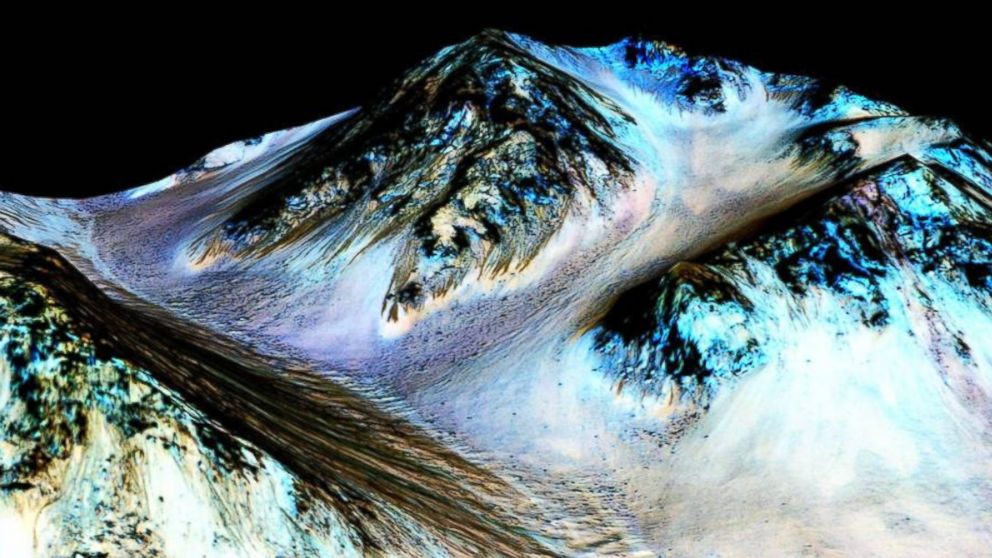Mars Has Water: Why NASA Discovery Matters
— -- Traces of liquid water have been found on Mars, NASA said today, raising questions about the possibility of life on the Red Planet.
Dark, 100-meter-long streaks flowing downhill on Mars are believed to have been formed by contemporary flowing water, according to NASA. The findings come from NASA's Mars Reconnaissance Orbiter and raise the possibility there could be life -- or even microbes -- living inside the Red Planet.
The discovery is also a boon to a future human manned mission to Mars since it would lighten astronauts’ load if they could instead rely on water found on the Red Planet.
“I think all of the scientific discoveries we’re making on the surface of Mars…these observations are giving us a much better view that Mars has resources that are useful to future travels," John Grunsfeld, NASA associate administrator, said at the news conference. "I think all of the scientific discoveries we’re making on the surface of Mars, these observations are giving us a much better view that Mars has resources that are useful to future travels."
Water is of course a building block of life. While Martian water is briny, its possible astronauts could purify and drink it. Water is also composed of oxygen molecules, a crucial component to sustaining life on the Red Planet.
While today’s discovery is huge, it is small compared to the rivers, lakes and vast oceans that are believed to have flowed on Mars billions of years ago. The findings, however, fuel speculation that life may have at one time thrived on Mars or could possibly even exist today.
A study published in the journal Nature Geoscience identified waterlogged molecules taken from readings from orbit.
Researchers said they don’t yet know where the briny water is coming from on Mars.
“We now know Mars was once a planet very much like Earth with warm salty seas and fresh water lakes,” Jim Green, planetary science director at NASA, said at a news conference. “But something has happened to Mars, it lost its water.”
The huge discovery has pushed forward NASA's resolve to send humans to the Red Planet.
"We are on a journey to Mars and science is leading the way," Grunsfeld said. "It's going to provide us with a great sense of our place in the universe and our solar system in particular. ... Science never sleeps."




